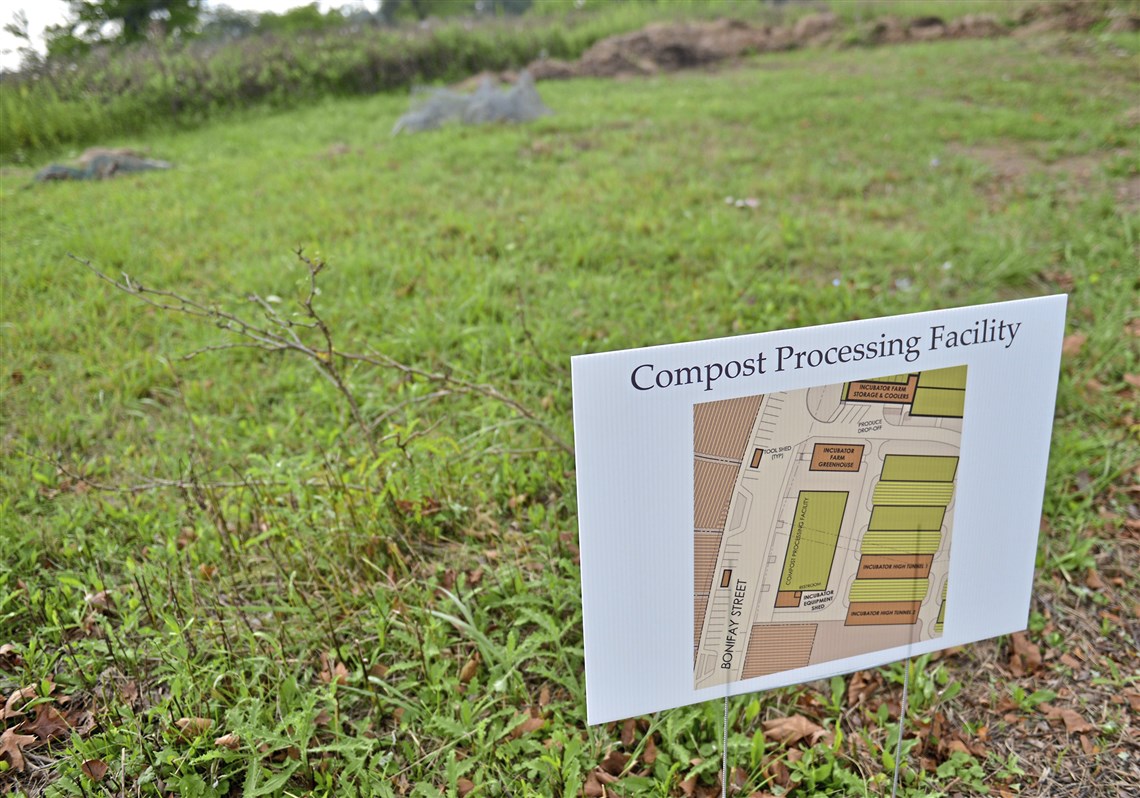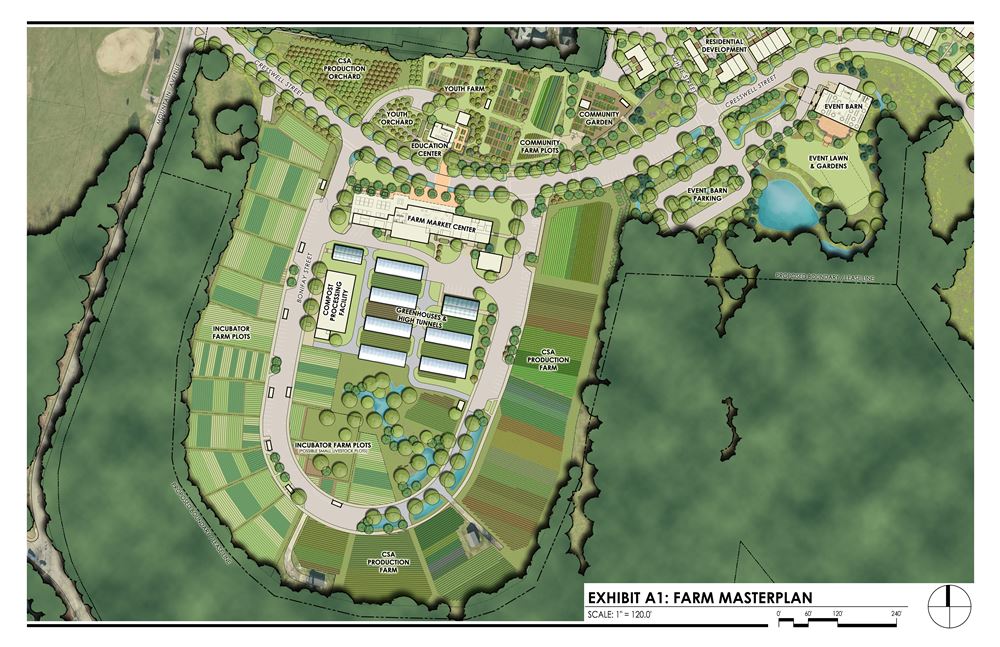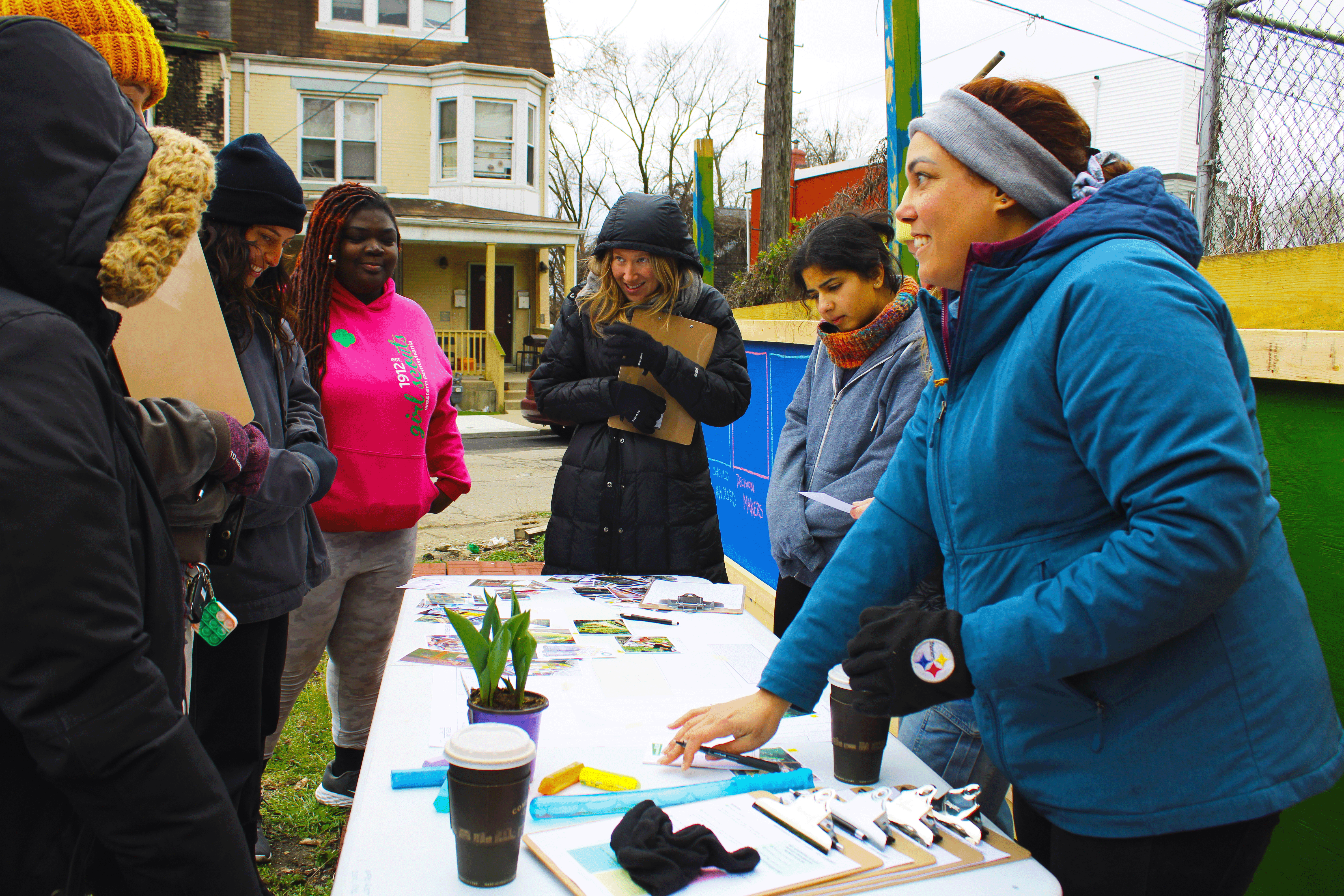It will be years before it’s that large, that functional and that brag-worthy, but the people who had a hand in getting it this far assembled Thursday to walk the horseshoe street surrounded by Queen Anne’s lace and other overgrowth and learn what it will look like.
The Hilltop Urban Farm is partially cleared land, amended with organic compost, growing cover crops. It will unfold in phases, as parts of old foundations still have to be dug out. The plan calls for community supported agriculture, or CSA, through which people buy shares of produce for a season. Incubator farms will help people start their own businesses. An orchard, a youth farm, greenhouses, compost processing, stormwater ponds, a farm market and community plots are all part of the plan.
Sarah Baxendell, project manager for the Hilltop Alliance, said the first crops could be grown after another year of soil improvement.
The site sits high above Becks Run Road, which floods regularly. She said stormwater mitigation ponds would prevent one million gallons from Becks Run or from entering water and sewer infrastructure.
The farm began as an idea four years ago when Aaron Sukenik, executive director of the Hilltop Alliance, sought advice from Grow Pittsburgh and Penn State Extension as to whether a farm would be feasible on the site. The former public housing site was demolished from 2006 to 2010. Neighborhood Allies, Heinz Endowments and the PNC Foundation supported the study.
To be a community asset for both enterprise and sustenance, it had to square with the federal government’s requirements that at least part of the land return to residential. The land is owned by the U.S. Department of Housing and Urban Development.
The Allegheny Land Trust is poised to buy the portion for farm land if it transfers from federal control to the city. Chris Beichner, president and CEO of the land trust, said the organization would then lease the land to an experienced farming interest.
The predevelopment preparations have cost about $500,000, and the entire cost, including underground infrastructure, will cost about $9.9 million, Ms. Baxendell said. The Henry L. Hillman Foundation is the largest supporter.
Suzy Kircher, a member of the Mount Oliver City-St. Clair Community Group, said she “wanted to cry to finally see this happen after all the talking. To see the fields plowed, the top soil, I thought, ‘This is really going to happen!’”
Rev. Maurice Trent, pastor of the Lighthouse Cathedral on nearby Fisher Street, said he “became excited about this because of the youth component. We do youth programming and have a lot of kids who need” opportunities.
The public housing neighborhood once was home to 1,089 families. Ms. Mangham said sometimes, when she plows, her head fills with memories “of tons of family from here, of playing up here on the loop.”
She said she expects to find “some sort of identifications” of former residents. “I’m sure I will with all the tilling we will be doing.”
Diana Nelson Jones: djones@post-gazette.com or 412-263-1626.



